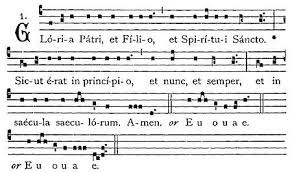 Did you know that whilst it’s estimated that there are about 1 million Catholics attending Mass regularly in England & Wales, there are at least another 3 million who for one reason or another don’t come to church.
Did you know that whilst it’s estimated that there are about 1 million Catholics attending Mass regularly in England & Wales, there are at least another 3 million who for one reason or another don’t come to church.
Probably all of us have brothers or sisters, sons or daughters, nephews or nieces, or grandchildren (and perhaps even great grandchildren) who no longer practise their faith. To many of us it can be a real source of sadness. We might even wonder what we’ve done wrong!
The reality is we’ve probably done nothing wrong. People live their own lives and make their own choices and in today’s society there is an awful lot competing for our attention which can squeeze church-going out of mind.
 A better question – but another one for which it’s hard to find an answer – is what can we do about it? Should we say something to our lapsed friends and family or should we say nothing? Should we pester them or ignore the fact that they no longer come to church?
A better question – but another one for which it’s hard to find an answer – is what can we do about it? Should we say something to our lapsed friends and family or should we say nothing? Should we pester them or ignore the fact that they no longer come to church?
One thing we can do is talk to one another in the parish about it: to share our own experience. Perhaps some of us have had success in encouraging loved ones back.
Perhaps some of us ourselves lapsed once and yet found our way back. The interesting question there is what brought us home?
 To mark the last phase of our Year of Faith, we plan to have a prayer campaign for those who no longer come to church, running from Home Mission Sunday (15 September) until the start of Advent.
To mark the last phase of our Year of Faith, we plan to have a prayer campaign for those who no longer come to church, running from Home Mission Sunday (15 September) until the start of Advent.
We will prayer together each week during our Sunday Mass intercessions for those who are not with us.
We will be invited to take a copy of the prayer home with us, on small business-size cards. It’s up to each us what we do with them.
Some may choose to say the prayer daily, making it part of their usual prayer routine. Others might just decide to stick it on the fridge or leave it lying about the house.
Perhaps it will start a conversation which in turn might be the beginning of something more. At the very least, family and friends who see it will know we’re praying for them.
What’s most important in this time is that we each value the prayer we make: that we believe God will hear us and will answer.
Our Home Mission Prayer, ‘Crossing the Threshold‘ can also be found on the Prayer page of the website.





